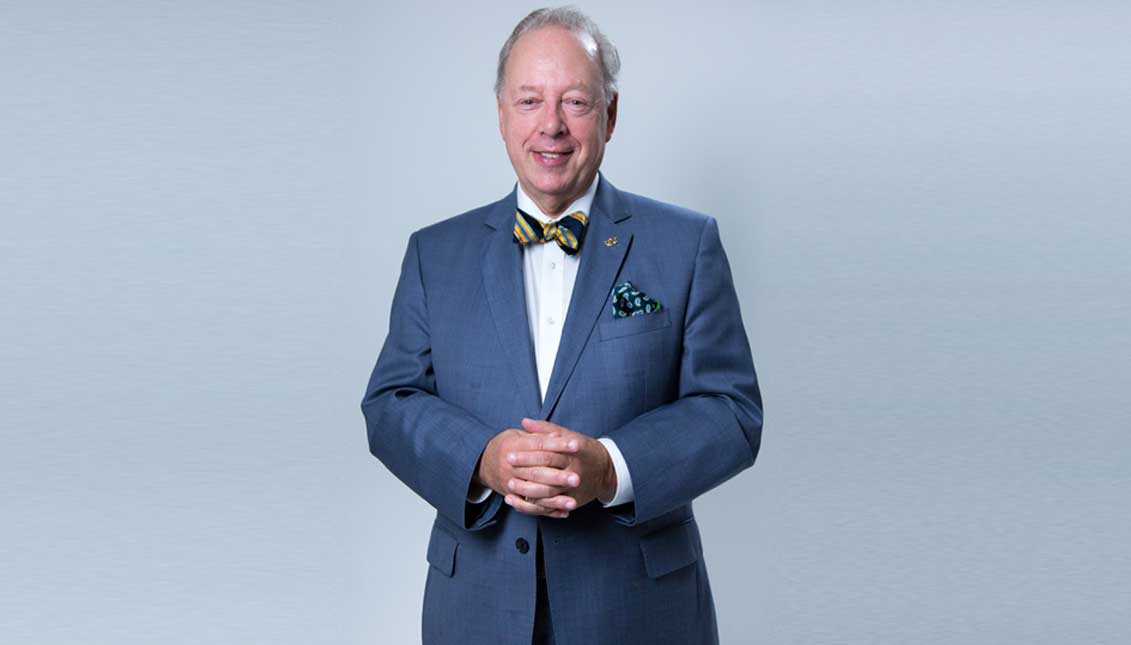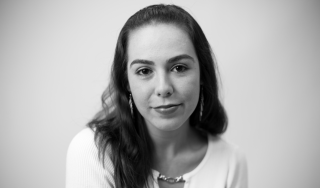
Daniel Schidlow: Healing With The Immigrant Spirit
Dr. Daniel V. Schidlow, Dean of Drexel’s College of Medicine, Senior Vice President of Medical Affairs at Drexel University, and professor specialized in…
Inhale, exhale.
Doctor Daniel V. Schidlow has always been interested in the power of a deep breath; the power in a child breathing with ease after undergoing a successful pulmonary transplant, the power of catching ones breath after schmoozing in order to forge connections that go beyond ethnicity or class, or the power in having the lung capacity to mightily belt classical opera in the hallways next to patients in need of treatment by the means of Neapolitan baritones.
Now, as a settled-in Walter H. and Leonore Annenberg Dean and Senior Vice President of Medical Affairs at Drexel University College of Medicine, perhaps the breathing comes easier than it did before when he was a fresh Chilean immigrant practicing in The Bronx, or possibly even earlier when he was a young man struggling to work in a Santiago in the 70s, mired by political mayhem and populist divisiveness.
The path to stability for Daniel has taken decades, and has been a duty passed on generationally. He considers himself a typical product of the various waves of immigration that took place in the Americas. His Jewish parents fled Germany in 1939 with his two older brothers, and ended up in La Paz, Bolivia. This is where Daniel’s paternal grandfather and grandmother, and his father’s sister had also immigrated to due to the rising potency of Nazism in Germany.
It was physically difficult to breathe in La Paz though, what with it being literally in the clouds and a snow-capped administrative capital, so the need to reach a place where one could not get sick from the altitude in order to continue to grow the Schidlow family became imperative. Thus, the Schidlow’s finally made their way over to Santiago de Chile, and shortly thereafter, Daniel came into the world.
Becoming an adult person focused on a specific career transpired rapidly for Daniel, and for his other Chilean peers. Like many countries in Latin America and Europe, graduating from high school left no opportunities for meditative gap years or a reflective liberal arts undergraduate education. At the age of seventeen, Daniel was already in his white coat studying to become a doctor.
Life did not give Daniel a chance to take ten after seven years of intense coursework, residency, and experiential learning. He earned his diploma in the midst of “great political turmoil during the Allende years”. In 1972, the year of his graduation and the year when he began working his first job in Internal Medicine, the “doctor strikes”, demonstrations, and skirmishes with the armed forces commenced, and neutrality for the sake of going to work every day for “purely ethical reasons” was nearly impossible to maintain. “If you went to the strikes, you were considered a momio, a mummy, because that is what the right-wingers were called. If you went to work, you were considered a communist, or a radical. You were externally defined by what you did.,” he expounded.
In 1973, Daniel began to work at the pediatric hospital, as having children as patients was always his driving force, and his passion, particularly in aiding children with long-term or chronic diseases that begin in childhood and go onto adulthood. His focus from the get-go? Pulmonary diseases, such as cystic fibrosis.
On September 10th 1973- call it fate, divine intervention, or a lucky prognosis -Daniel resigned from his position before Pinochet’s coup d’état. “This year has been almost lost for me,” he explained to the pro-Pinochet department chair, “there’s been so much chaos, and so many strikes, and people are talking politics when they need to be talking medicine. I want to go to the United States to train to be an academic pediatrician, and then return.” On the “Chilean 9/11”, the department chair called Daniel back in and tried to convince him to stay since circumstances had “bettered” in his opinion. But, by that point, Daniel had made his decision: he was going to New York City, to the land of huddled masses yearning to breathe free.
RELATED CONTENT
The Bronx epitomized that iconic line from Emma Lazarus’ poem, later forged into The Statue of Liberty, as it was a hotbed of immigration and foreign residents. Being Jewish and Hispanic in this neighborhood, despite occasionally being looked at with askance, was a plus and not a minus:
I felt very liberated when I came to the United States, because I saw the opportunity. You just had to do what you had to do. I never felt like I had obstacles. I always say that I have the immigrant spirit. Someone looks at me crooked? I’m going to win that person over, or I’m going to prove them wrong. I’m going to prevail.
This immigrant spirit fostered in Daniel an ability to be socially dexterous, to be able to adapt well in different communities and to, essentially, convince people of his worth and aptitude with schmoozing and the determination to carve a sense of belongingness for himself. One of the skills he attributes to his schmoozing expertise is the fact that he is impressively multilingual, speaking not only English and Spanish, but also German, Portuguese, Italian, French, and Hebrew, “oh, and I can also curse in six other languages” he jocularly sniggers.
Returning to Chile once more (even only for a visit) in 1981, left Daniel and his American wife breathless at the sight of discomforting, radicalized change, particularly the increase of militant and armed presence in the streets.
As his interests in pulmonary pediatric medicine became more ardent, Daniel moved his family once more to pursue research and practice in a leading facility in child care: St. Christopher’s Hospital for Children, which coincidentally, happens to be affiliated with Drexel. There, he was the youngest chief of medicine, from about 1983 to 1994. And though he had been approached multiple times to transfer to a better-paying position in a more prestigious location, Daniel felt compelled to stay in this underserved community, where he had developed both personal and servicial roots.
I feel very strongly- and I say this all the time -that my Hispanic background has been my best and the most important asset. I’ve always worked in disadvantaged neighborhoods and communities. The hospitals I have worked in have always been in heavily Hispanic neighborhoods, and I always like to speak in Spanish, and I love to connect. It gives me great pleasure. In the Bronx, and in North Philadelphia, culturally and linguistically I could understand them. I remember helping to translate or correct the signs in the hospital in the Bronx… Daniel contemplates.
On November 1st 2017, Daniel will celebrate his sixth year as a Dean and a Senior Vice President at Drexel. His appointment could be attributed to the fact that he has been with the College of Medicine since its inception or to his prowess and passion for his line of work, but maybe it could also be the innovative way that he has incorporated music in his scholarship and leadership.
A classically trained vocalist who assumed he was a tenor until his wife, a pianist, came along and straightened him out (“We fought because I didn’t think I was a baritone! She told me I was wrong!”), Daniel has been whistling down patient wings and singing Spanish and Italian opera to babies in neonatal intensive care units since he began practicing in The United States. As a professor of pediatrics, pharmacology, and physiology, Daniel would often make his students (as assignments that served as breathers from the anxieties of medical school) write ditties. He is more than his professional titles and positions; Daniel is the founder of DuCOM Classical, an interest group wherein medical students, faculty members, doctors and nurses can all sing together.
Daniel came to this country from modest means, and claims that he is “grateful to the nth degree” that he had the opportunity to improve upon himself, to greatly contribute to society, and to start a family in The United States. Nevertheless, he constantly tells his six children that they must never forget “whence they came” and that “money will only buy respectability from others, but not character or class.” His immigrant spirit has fortified and grown along with Daniel as he has moved through his professional and personal life in The United States. This has led him to breathe easily, to be able to take a step back and serve others. He only wishes the same privilege for other immigrants in this country.:
The world is made of immigrants. Every country we know has people that migrated somewhere to somewhere. When people, whose relatives came from The Mayflower, are looking askance at other immigrants, they are really looking askance at their own history, because their ancestors escaped religious persecution, poverty, or oppression when they came to this country. If they feel afraid of immigrants, they need to look back on their history and see how their ancestors were looked upon when they first came here. Fear of the other is very common among people, and it’s the root of xenophobia, but if people were to just stop for a minute and think where they came from, they would understand immigration.











LEAVE A COMMENT: